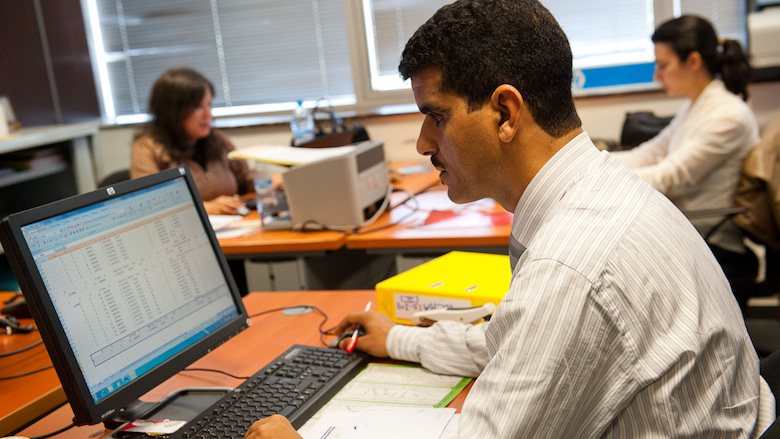Key messages:
- Morocco has made considerable economic and development progress in the past 15 years. Its Gross Domestic Product (GDP) per capita grew at 3.2% on average. The country is also enjoying a demographic dividend, but quality of the workforce is low. With population growth slowing, to 1.25% between 2004 and 2014, the dependency ratio has halved and will stay low until 2030. This provides a great opportunity for the country, but also places additional pressure on the economy to create sufficient jobs for the 300,000 working-age people entering the labor market every year.
- Morocco’s labor market is characterized by three key challenges:
- Lack of inclusion: Youth and women are less integrated into the labor market. Female labor force participation is particularly low (23%). Youth participation has declined as the share of youth staying in school has more than doubled.
- Slow job growth: Job creation has not been sufficient to absorb the inflow of working-age population. Formal employment is concentrated in older and larger firms while small and medium enterprises face numerous constraints to operate and expand.
- Low quality of jobs: Informality dominates the labor market. The growth of non-agricultural employment is slow and employment in the services sector is concentrated in low-skilled services. Productivity is low, and workers lack sufficient mechanisms for protection and social dialogues.
- This results in a misallocation and under-utilization of the labor, which prevents the economy from reaching its potential. Nevertheless, there are opportunities to strengthen the Moroccan labor market and increase its contribution to Morocco's economic growth. Measures may include improving the functioning of the labor market, especially on the demand side to generate more and better jobs. This requires a more transparent and flexible regulatory framework to encourage private sector development. At the same time, complementary supply-side policies could be important to improve educational attainment and remove the entry barriers for youth and women.
- Going forward, the Government has launched multiple initiatives with ambitious goals to promote employment. The National Agency for the Promotion of Employment and Skills (ANAPEC) launched its 2020 Vision in 2015 to expand the agency’s coverage to also include unqualified job seekers. ANAPEC also launched three active labor programs: Idmaj (wage subsidies for unemployed graduates); Te’hil (youth training); and Moukawalati (entrepreneurship promotion through training and financial assistance). In parallel, relevant ministries have embarked on three strategies on: (i) youth integration, which plans to improve the training system and integrate youth into the labor market through internship or skill matching; (ii) employment, which aims to increase employment and productivity; and (iii) microenterprise promotion, which intends to support microenterprise financing. On the demand side, many sectoral plans (e.g. Morocco's Global Jobs and Moroccan Green Plan) aim to promote job creation through macroeconomic and sectoral policies (e.g., compensation reform, flexible exchange rate policy, pro-growth sector strategies).
- Overall, the report recommends that the Government support policies be integrated in the broader national strategy and complemented with an enabling policy framework for job creation. The Government must also ensure an enabling environment (macroeconomic stability, ease of doing business and the rule of law) for businesses to grow and create jobs. It is also essential that the government invests in infrastructure, human capital and other social and economic factors necessary for job creation.
